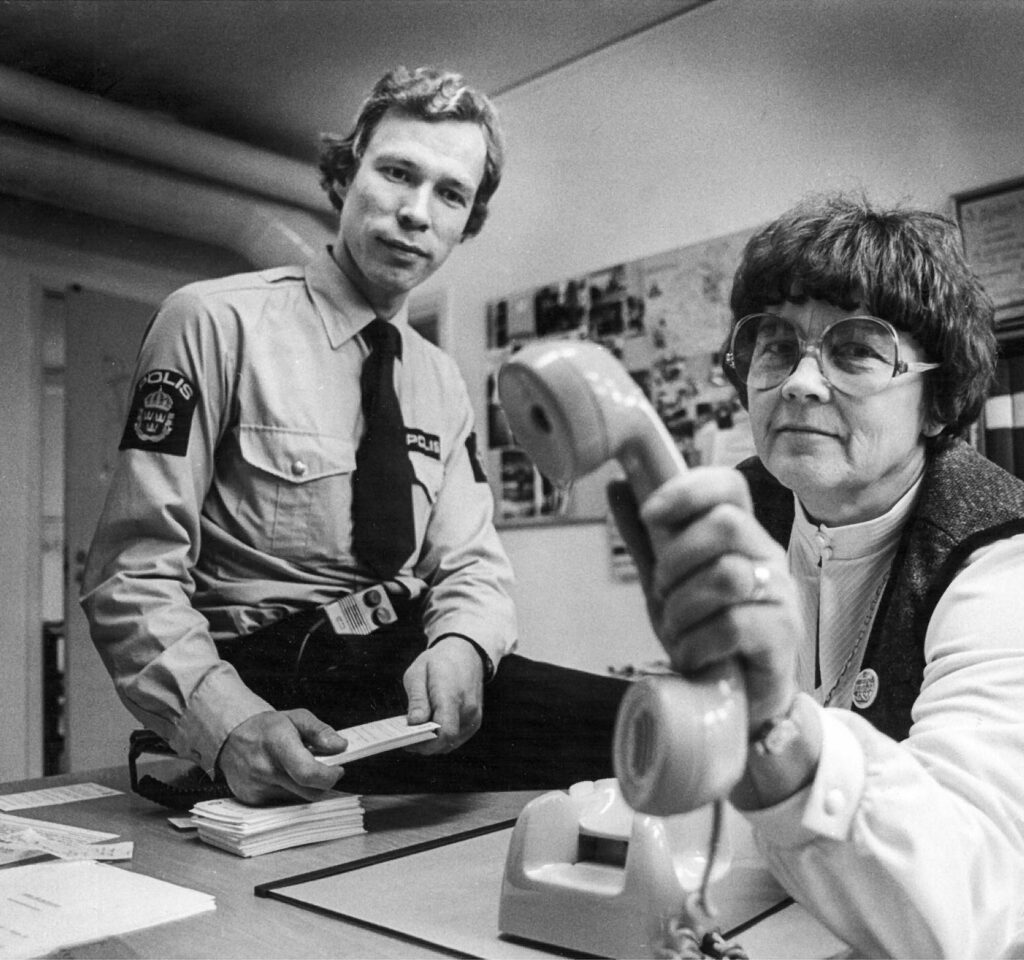History of Victim Support Sweden
How Victim Support Sweden was founded
“There is a lot of talk about the perpetrators. There’s nothing wrong with that, but the victims of crime have been completely forgotten.” The words are those of police officer Per Svensson and the year is 1985. Together with the deaconess Saara Bäckman, Svensson tells the local newspaper in Södertälje, how they founded “Support for Victims of Crime” a year earlier – the first victim support centre in Sweden. As a neighbourhood police in the district of Hovsjö in Södertälje, Per Svensson had seen a need in victims of crime which he couldn’t solve in his professional role.
“As a police officer, you’re usually too busy to take the time to stay with the victims of crime and listen to their needs”, Svensson told the local press. He met people who needed someone to talk to, but who also often times needed advice on how to fill out insurance claims or write applications for economic compensation for damages..

The idea for Victim Support Sweden came from a newspaper article about how the Red Cross provided victim support at a neighbourhood police venue in the Stockholm area. Per Svensson got in touch with them, but got the response that they lacked the resources to start a similar initiative in Södertälje. Instead, Svensson decided to take the matter into his own hands. The Deaconess, Saara Bäckman, who was involved in the then recently founded women’s shelter in Södertälje, came to his aid.
I was just as excited by the idea. The people who have been victims of crime are a forgotten group. They’re often upset and chocked after having been victims of apartment burglars, purse robbers or other perpetrators.
Saara Bäckman to the local newspaper
The idea was then approved by the police management who were positive and allowed the victim support centre to use a room in one of the police facilities in Hovsjö. A phone was provided by the local church. Per Svensson and Saara Bäckman recruited volunteers and soon there were around ten volunteers who every Thursday took turns answering incoming calls.
At the time, there were already two functions which offered support to victims of crime in Sweden – in Sweden and in Malmö – but the Victim Support Centre in Södertälje was the first non-profit organisation.
“Our hope is that Victim Support Sweden (BOJ for short in Swedish) will expand to more municipalities, so that we can become a life boat for any one who has been the victim of a crime, Saara Bäckman told Sörmland news in 1984.
And so it was. In 1988, five victim support centres became the Victim Support Centres national federation, which today is called Victim Support Sweden. Thirty years later there are around 70 local centres with hundreds of local offices all around Sweden.
Original text: Amanda Säfström Translation: Rebecka Durén